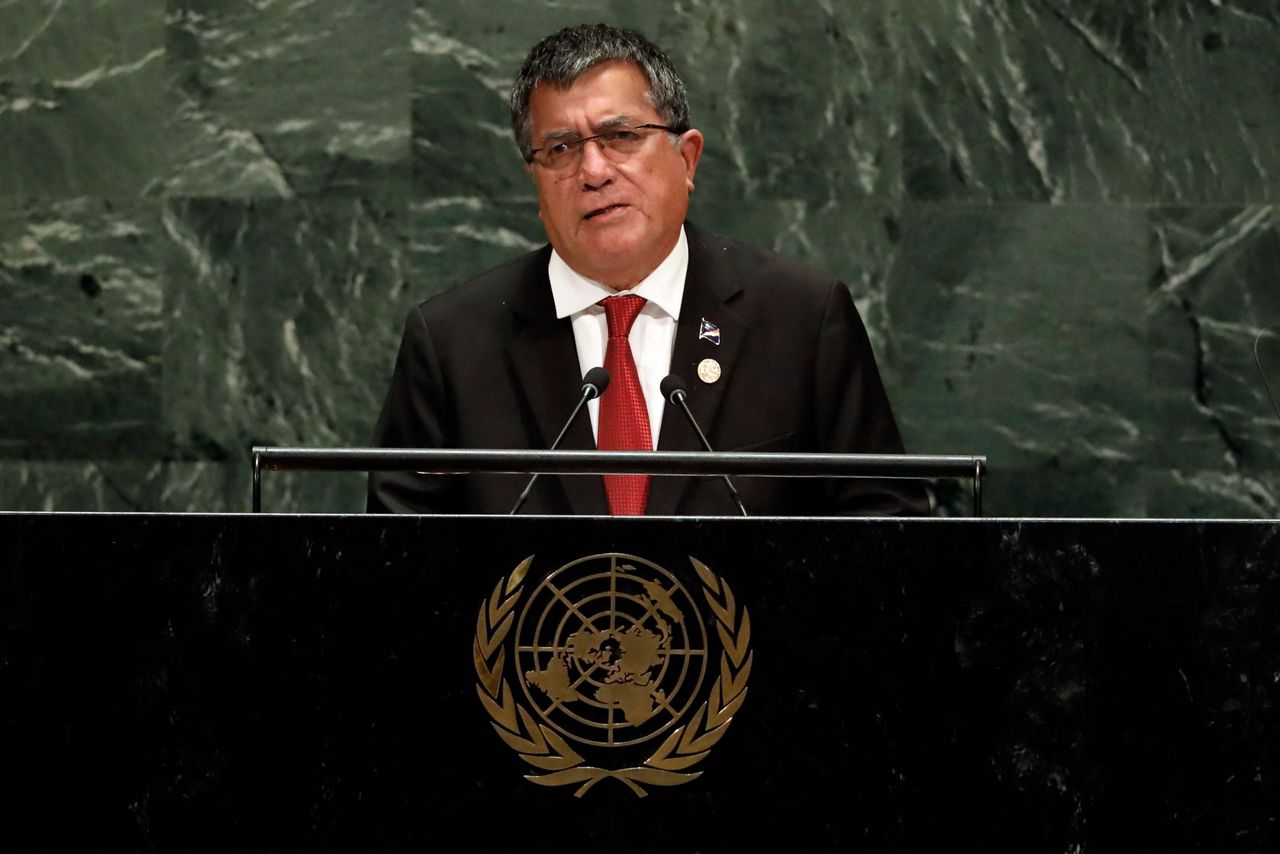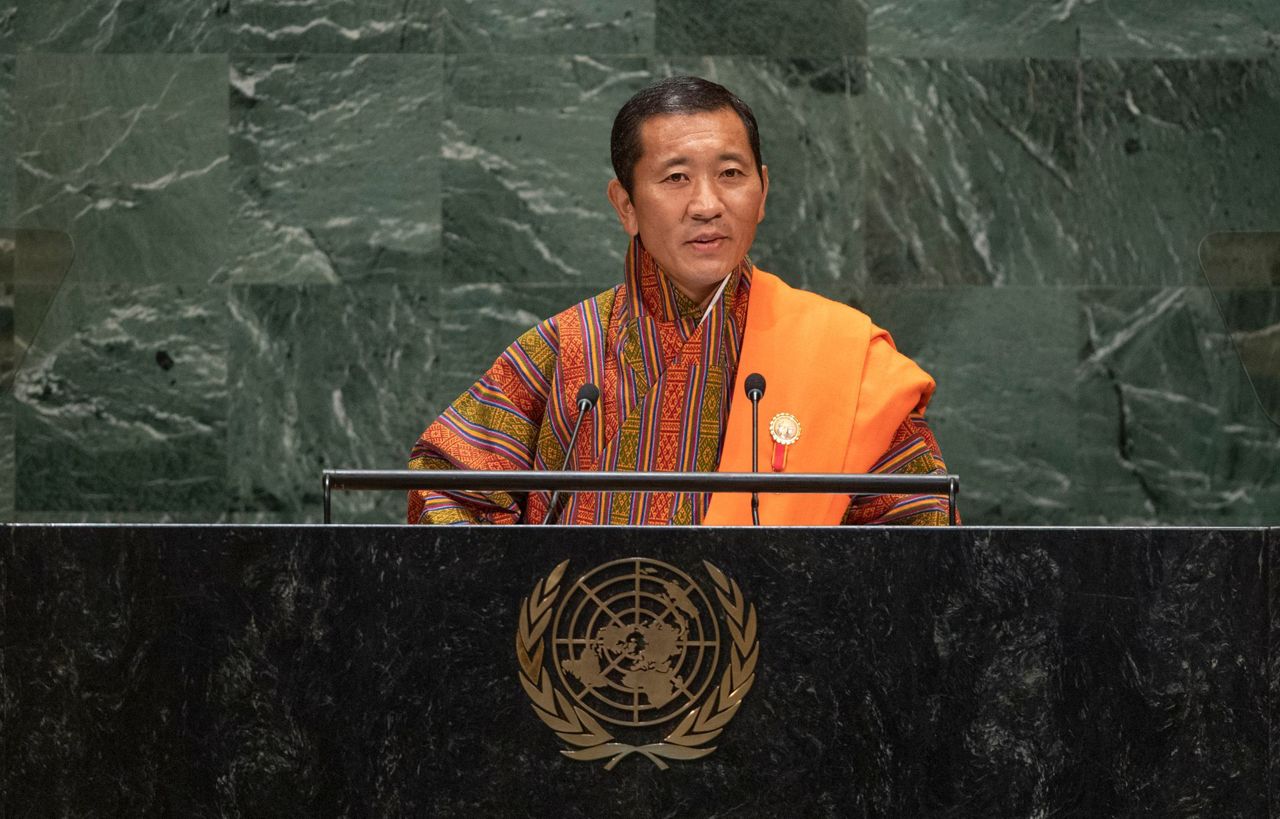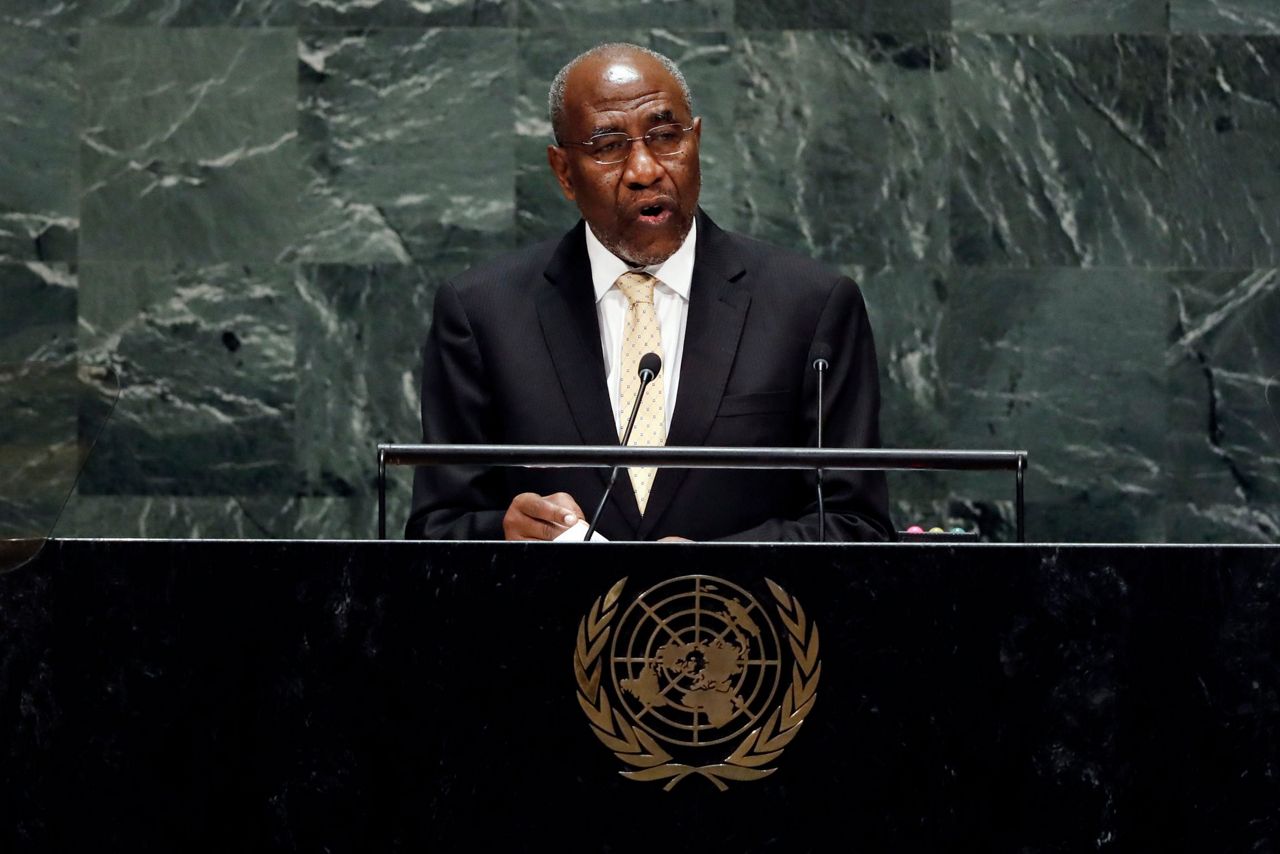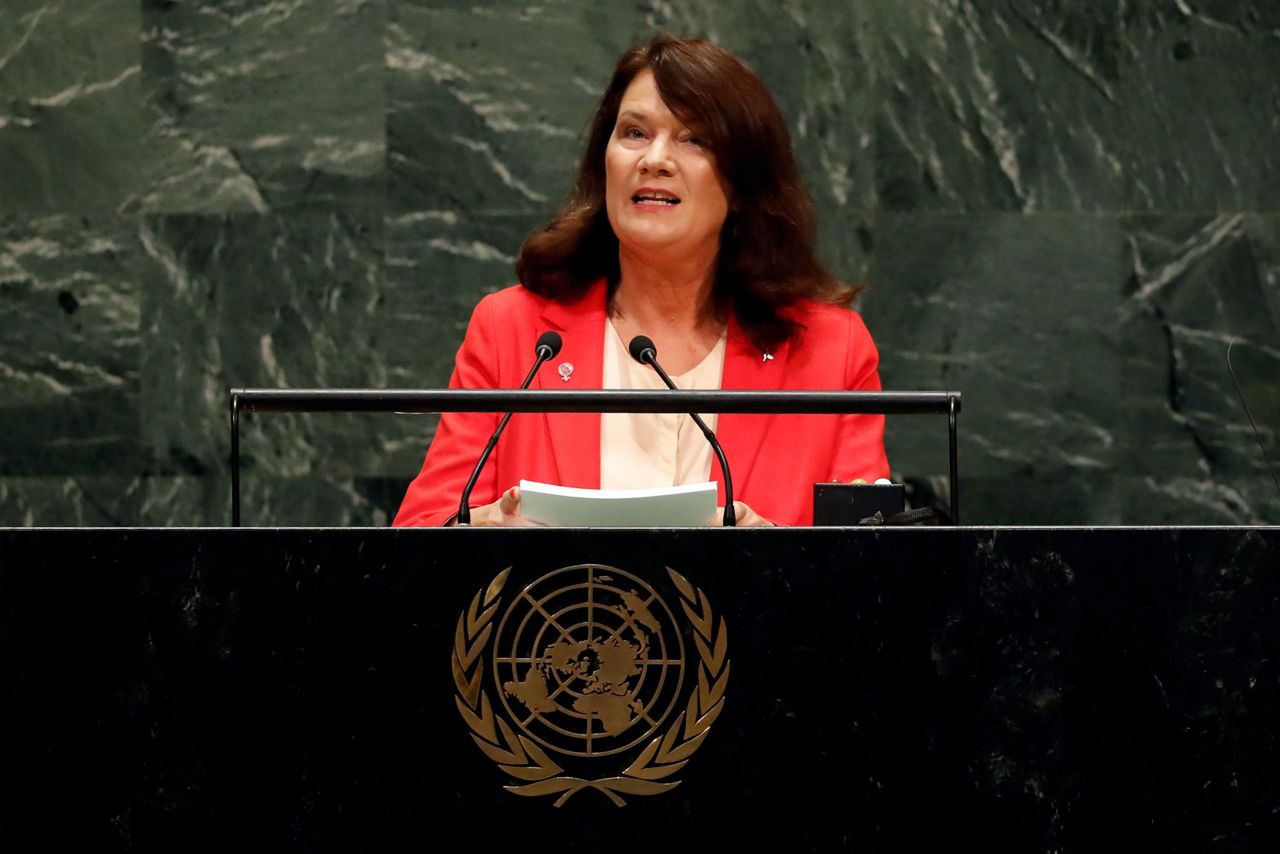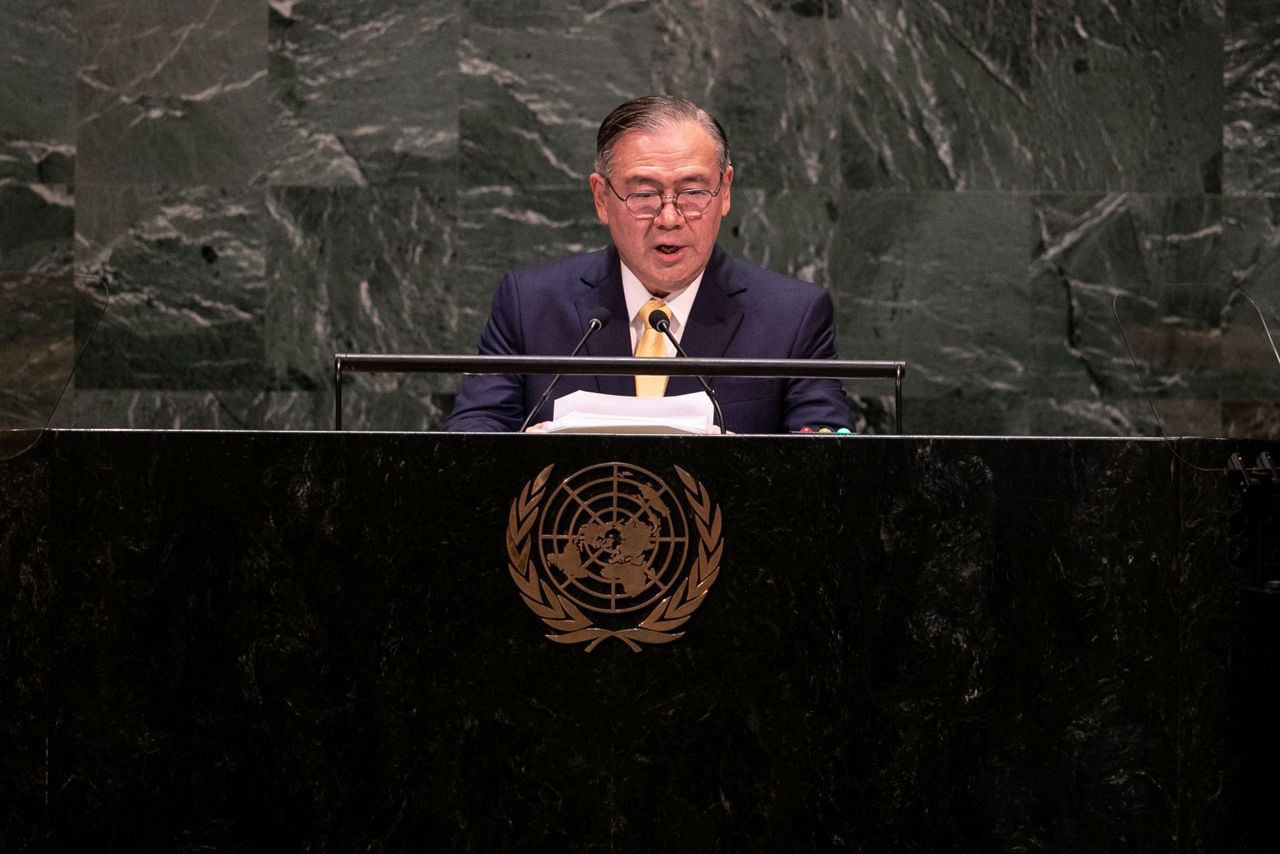UNITED NATIONS (AP) — Lots of leaders saying lots of things about lots of topics — topics that matter to them, to their regions, to the world.
That's what the speechmaking at the U.N. General Assembly invariably produces each year. And each year, certain enormous topics and certain louder voices dominate.
Here, The Associated Press takes the opposite approach and spotlights some thoughts you might not have heard — the voices of leaders speaking at the United Nations who might not have captured the headlines and the airtime on Saturday, the fifth day of 2019 debate.
___
"When I was a young boy in the Marshall Islands, the unavoidable sound of ocean waves crashing upon our coral reefs was, to me, a natural symphony. But to my grandchildren, this same sound is rapidly becoming, to them, a threat of inundation. Do they not share my same right to live in ancestral homes?"
— John Silk, foreign minister of the Marshall Islands.
___
"The focus of our education is beyond imparting skills and knowledge. We would like to ensure that our children learn to become good human beings, with qualities such as compassion, empathy and respect for nature."
— Lotay Tshering, prime minister of Bhutan.
___
"The influx and prolonged presence of refugees has had an adverse impact on the environment. Forests have been stripped as refugees need poles for houses, firewood, medicine, thatching and fodder within and far from the refugee settlements."
— Ruhakana Rugunda, prime minister of Uganda.
___
"The U.N. system is a global public good — and it is in our shared strategic interest to keep investing in it. The long-term gains are far greater than any short-term costs. The prosperity of one nation is not part of a zero-sum game in which nations either win or lose."
— Ann Linde, foreign minister of Sweden.
___
"It is telling that advocates of multilateralism conveniently leave out issues of migration. Migration is as multilateral as it gets. Migration is the pervasive reality today. ... Migrant labor raises great cities out of deserts, mans the ships that enable global trade. Migrant health workers care for the sick, the children, the elderly, giving to strangers as much care as they gave their own loved ones back home. ... Migrants themselves are grateful for the love that is sometimes returned — and sad when they are hurt instead."
— Teodoro Locsin Jr., foreign minister of The Philippines.
___
Copyright 2019 The Associated Press. All rights reserved. This material may not be published, broadcast, rewritten or redistributed.



